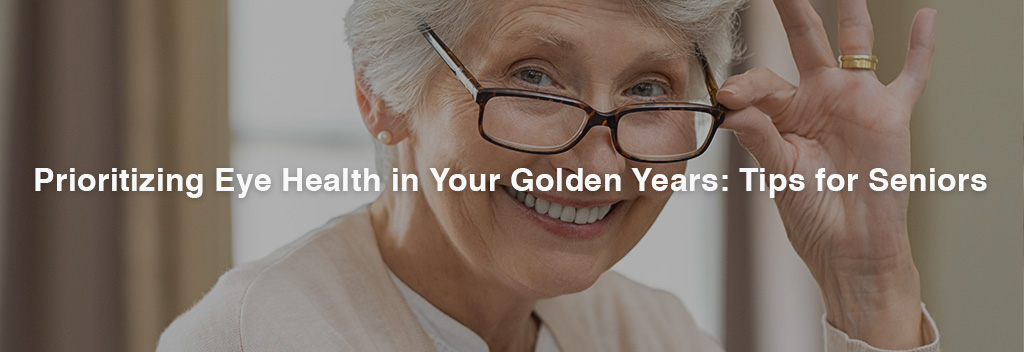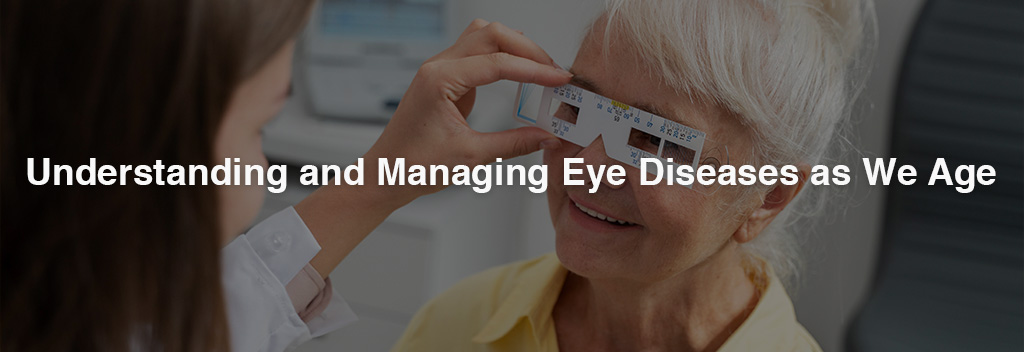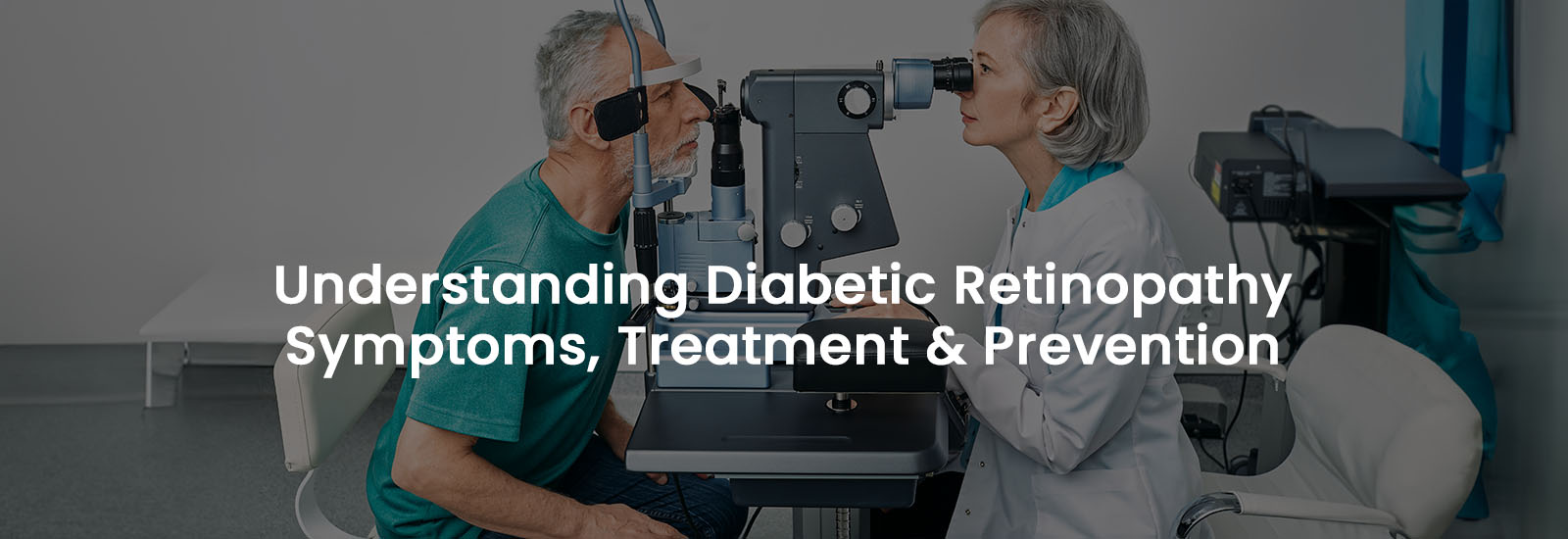
As we approach our golden years, vision issues become more prevalent, and maintaining good eye health becomes essential to maintaining an adequate standard of living. However, you don’t have to sacrifice your way of life if you take proper care of your eyes.
Protecting your vision can be accomplished by being aware of what to anticipate and when to seek professional care. When you get older—60s and beyond—you should be aware of the early indicators of age-related issues with your eyes that could lead to visual impairment.
Understanding Age-Related Eye Conditions
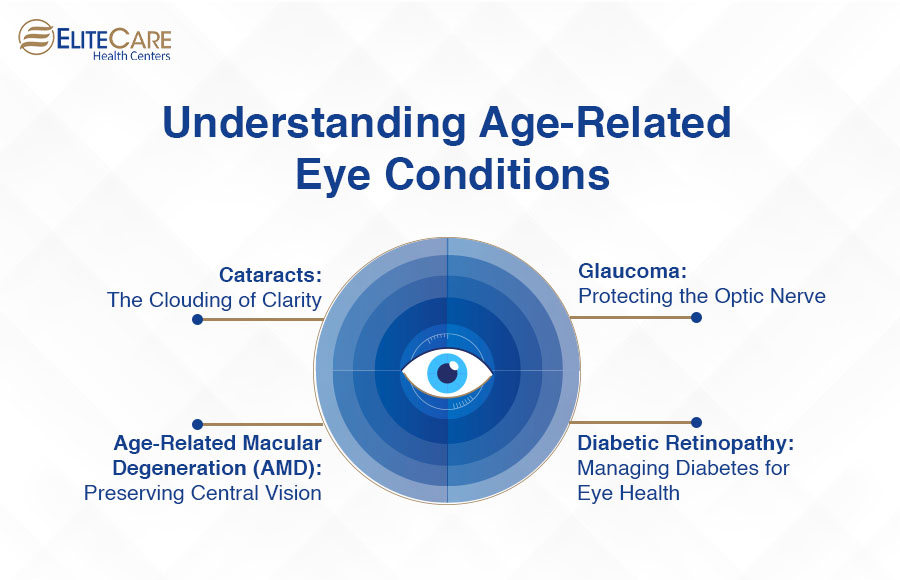
1. Cataracts: The Clouding of Clarity
The clouding of the lens is a common age-related eye disorder known as cataracts. Blurred vision, heightened sensitivity to brightness, and trouble seeing in low light can all result from this issue. Early detection is essential for cataract surgery, which is a very successful treatment option. To track the development of cataracts and determine whether intervention is necessary, routine eye exams are key.
2. Age-Related Macular Degeneration (AMD): Preserving Central Vision
The macula, which is the center region of the retina and provides precise, detailed vision, is impacted by AMD. Loss of central vision can result from the macula’s deteriorating cells as we age. Although there isn’t a treatment for AMD, some lifestyle changes can slow the disease’s progression. These include consuming an antioxidant-rich diet, exercising frequently, and quitting smoking.
3. Glaucoma: Protecting the Optic Nerve
Glaucoma is a group of eye conditions that damage the optic nerve. It is one of the main causes of permanent blindness and it is often due to increased intraocular pressure. Early detection of glaucoma by routine eye exams and efficient treatment, typically with eye drops, can help prevent vision loss and delay the disease’s course.
4. Diabetic Retinopathy: Managing Diabetes for Eye Health
Diabetes increases the risk of diabetic retinopathy, a disorder that damages the retina’s blood vessels, in elderly people suffering from the condition. To prevent diabetic retinopathy, blood sugar levels must be controlled with a balanced diet, frequent exercise, and medication adherence. Regular eye exams can identify the disease early on and allow for timely treatment.
Tips Promoting Healthy Vision Through Lifestyle Choices
1. Nutrition for Eye Health: A Balanced Diet
Maintaining eye health requires a well-balanced diet packed with vitamins and minerals. Zinc, omega-3 fatty acids, vitamins C eg, A, and E, and other nutrients are essential for maintaining healthy eyes. Consuming leafy greens, fruits, nuts, and seafood can help maintain good eye health.
2. Hydration: Water for Wellness
Maintaining proper hydration is essential for overall well-being, which includes eye health. Staying well hydrated helps to avoid dry eyes, a major problem among seniors, and maintains the fluid balance in the eyes. Seniors should strive to consume eight glasses of water or more each day, taking into account their specific needs and degree of activity. This is an essential step when caring for the eyes.
3. Regular Exercise: A Sight for Sore Eyes
Physical activity is linked to numerous health benefits, including maintaining healthy eyes. Blood circulation is enhanced by exercise, and this promotes eye health. Easy, regular exercises such as yoga, swimming, and walking can improve general health and lower the risk of age-related eye disorders.
4. Protective Eyewear: Shielding Against Harmful Elements
When going outside, seniors should make it a priority to wear sunglasses that offer 100% UV protection. Long-term exposure to ultraviolet (UV) radiation has been linked to several common eye diseases in the eslderly, including cataracts. Additionally, mishaps that could endanger eye health can be avoided by wearing safety glasses when performing tasks like gardening or home repair.
Vision Care Practices for Seniors
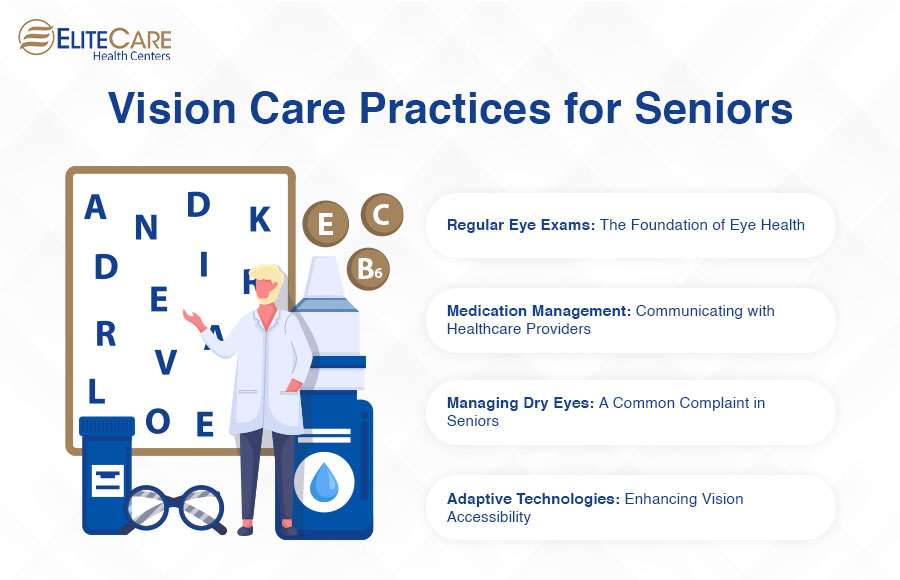
1. Regular Eye Exams: The Foundation of Eye Health
Seniors need to undergo regular eye exams even if they don’t seem to have any visual problems. Regular eye exams can help prevent vision loss and identify early indicators of eye disorders. Seniors should heed the advice of their eye-caring specialist regarding the frequency of eye exams, as it may escalate with age or in the presence of particular risk factors.
2. Medication Management: Communicating with Healthcare Providers
The adverse effects of multiple medications could affect the health of your eyes. Seniors should discuss any prescription or over-the-counter drugs they are taking with their healthcare providers to be sure they don’t have a negative impact on their eyes. Medication adjustments might be required to preserve the best possible eye health.
3. Managing Dry Eyes: A Common Complaint in Seniors
For seniors, dry eyes can be a common problem that is frequently made worse by things like decreased tear production, certain medications, and environmental variables. Comfort and management of dry eyes can be achieved by using artificial tears, drinking enough water, and utilizing a humidifier in dry conditions.
4. Adaptive Technologies: Enhancing Vision Accessibility
Using adaptive technologies can improve seniors’ daily lives. Magnifiers, audiobooks, and larger font settings on electronics are a few examples of tools that can help people with age-related vision impairments read and access information more easily.
Conclusion
In your golden years, prioritizing eye health is a fundamental aspect of maintaining overall well-being. By understanding age-related eye disorders, making lifestyle choices that support eye health, and adopting vision care practices, seniors can enjoy optimal vision and an improved quality of life.
For any vision-related concerns, consult with a trusted primary care physician. EliteCare is home to some of the best medical facilities in Florida. Schedule an appointment by visiting our website or call +1 888-596-2090.
Frequently Asked Questions
Being physically active, hydrating yourself, and going for regular eye check-ups are essential for maintaining good eye health.
As we age, we become more prone to eye-related disorders. Taking good care of our eyes becomes more important as we grow older as it can help prevent the onset of several issues such as cataracts.
The most prevalent causes of vision loss in the elderly include diabetic retinopathy, cataracts, glaucoma, and age-related macular degeneration (AMD). Among these, AMD is the most common cause.
As we age, the eye lens experiences two changes: a clouding and a loss of pliability.

